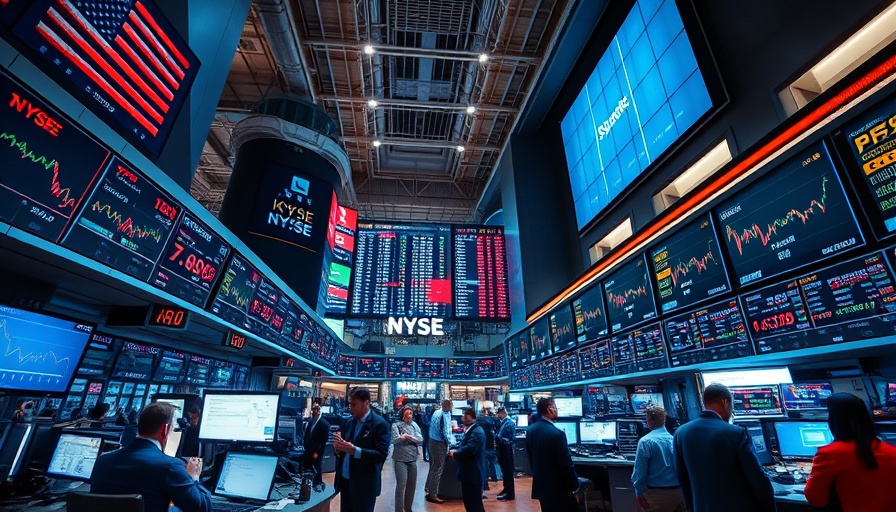
Market Anxiety: How Tariffs Sparked Major Stock Drops
The recent turmoil surrounding tariff decisions by the Trump administration has sent shockwaves through global stock markets. The S&P 500 and Nasdaq Composite have reported significant quarterly percentage drops, highlighting investor concerns about a looming recession fueled by escalating trade tensions.
Understanding the Impact of Tariff Policies on Investments
Tariffs, intended as a tool for protecting domestic industries, often have the opposite effect in the complex web of global trade. Market analysts emphasize that these tariffs can disrupt supply chains and inflate costs for consumers and businesses alike. As tensions rise, companies adjust predictions that can lead to a domino effect of reduced consumer confidence, ultimately affecting stock prices.
The Ripple Effect on Investment Strategies
Investors need to respond strategically to changes in the market. This period of volatility presents challenges, but it can also offer unique opportunities. Strategies such as dollar-cost averaging, where investments are staggered over time to mitigate risk, become increasingly effective in uncertain climates. Moreover, diversification—ranging from ETFs to bonds—can provide a buffer against potential losses in a turbulent market.
A Deeper Look at Stock Market Trends
Current stock market trends reveal more than just immediate reactions; they reflect long-term implications. The S&P and Nasdaq's drops highlight a fear that may influence investment decisions in technology stocks, healthcare stocks, and more. Investors keen on growth can analyze how these companies adapt to economic pressures.
Future Predictions: What Lies Ahead?
Looking forward, the uncertainty surrounding tariffs and trade policies suggests that stock market volatility may continue. Investors must stay informed not just about market corrections, but also about broader economic indicators. Inflation concerns alongside interest rate adjustments by the Federal Reserve could strongly influence market movements, making it essential for investors to refine their strategies in anticipation of these shifts.
The Importance of Risk Management
In a climate of uncertainty, effective risk management should be a priority for all investors. Understanding one's risk tolerance and adapting investment portfolios accordingly is crucial. Tools such as robo-advisors and investment apps can assist in managing risk while optimizing returns. By staying educated on market trends and employing sound financial principles, investors can navigate through turbulent waters more efficiently.
Investing Mindfully in Volatile Markets
If history teaches us anything, it’s that market corrections are, unfortunately, part of the investment landscape. During periods like these, focusing on long-term goals can help maintain composure. Strategies such as impact investing, venture capital exploration, or even cryptocurrency investing might unfold as attractive niches for those willing to venture into less conventional portfolios.
Common Misconceptions About Market Reactions
Many novice investors believe that declines in major indices signal an inevitable market crash. However, seasoned investors recognize that market fluctuations are a natural part of economic cycles. Understanding this can help mitigate panic reactions, guiding investors toward more pragmatic, research-based strategies.
Your Path to Financial Stability
Navigating through the stock market’s ups and downs requires an informed perspective and a proactive approach. By focusing on comprehensive investment education, utilizing resources like investment research tools, and developing a diversified portfolio, investors can better position themselves against volatility.
As market dynamics evolve, staying ahead means actively engaging with trends and educating oneself on investment strategies. The ongoing debate over tariffs reminds us that even small policy decisions can have vast implications.
 Add Row
Add Row  Add
Add 



Write A Comment